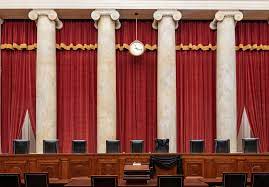Under New Jersey employment law, tenure provides college, university and school faculty great protection. However, this protection is not unlimited. A New Jersey appeals court explained how courts should review decisions to terminate a tenured college professor in the case of Chee Ng v. Fairleigh Dickinson University.
Background
Dr. Chee Ng was a professor of finance at the Silberman College of Business at Fairleigh Dickinson University. He was granted tenure in 2003, and promoted to full professor in 2007. In 2009, ten of his students complained to the school regarding Dr. Ng’s conduct in class. They alleged that he made discriminatory comments in class, mistreated students, and was generally rude. Similar complaints were made again in 2010. The department chair counseled him, but similar complaints were made by more students in 2012. More counseling was held. Complaints were again received in Fall 2013 and Spring 2015; again, he was counseled. Dr. Ng then took a sabbatical during the Fall 2015 and Spring 2016 semesters. However, more student complaints were received upon Dr. Ng’s return. The complaints were investigated, and the Dean met with Ng and advised him that if there were more upheld student complaints, there would be more severe consequences.
 New Jersey Lawyers Blog
New Jersey Lawyers Blog



 certificates
certificates recovery of attorneys fees, enhanced damages, and a longer, six-year statute of limitations. One question left open by the Legislature was whether the statute of limitations would be applied retroactively to cover conduct prior to the amendments, or prospectively to cover only conduct from 2019 onward. The New Jersey Supreme Court has now unambiguously answered that question.
recovery of attorneys fees, enhanced damages, and a longer, six-year statute of limitations. One question left open by the Legislature was whether the statute of limitations would be applied retroactively to cover conduct prior to the amendments, or prospectively to cover only conduct from 2019 onward. The New Jersey Supreme Court has now unambiguously answered that question. this requirement. However, in the case of
this requirement. However, in the case of  permissible scope of non-disparagement agreements in those settlement agreements in the case of
permissible scope of non-disparagement agreements in those settlement agreements in the case of  decision has significant implications for how employees should handle allegations of misconduct and resulting discipline.
decision has significant implications for how employees should handle allegations of misconduct and resulting discipline. supported by pro-employer groups. However, the United States
supported by pro-employer groups. However, the United States  and a half”) for work beyond forty hours in any week. However, there are exceptions. The major exemptions are for executive, administrative, professional, and highly compensated employees. In addition to the requirements particular to each exemption, the employees cannot be paid less than the threshold for the exemption.
and a half”) for work beyond forty hours in any week. However, there are exceptions. The major exemptions are for executive, administrative, professional, and highly compensated employees. In addition to the requirements particular to each exemption, the employees cannot be paid less than the threshold for the exemption.